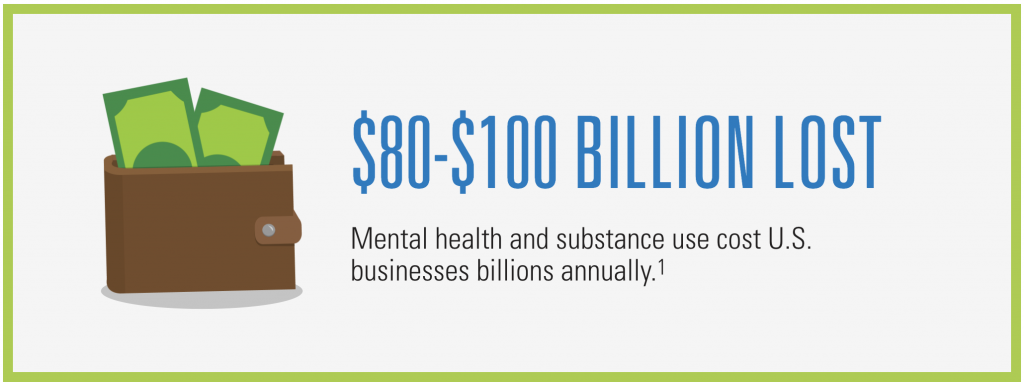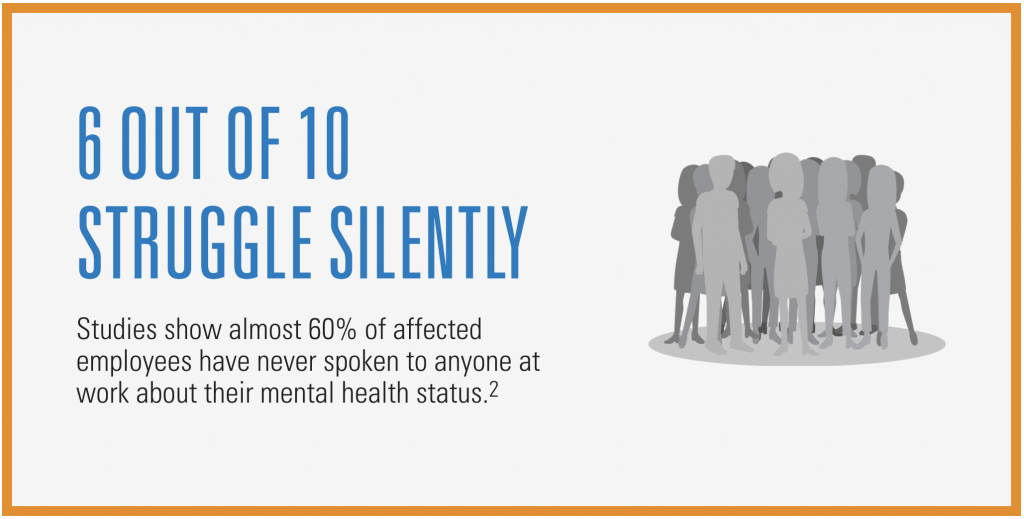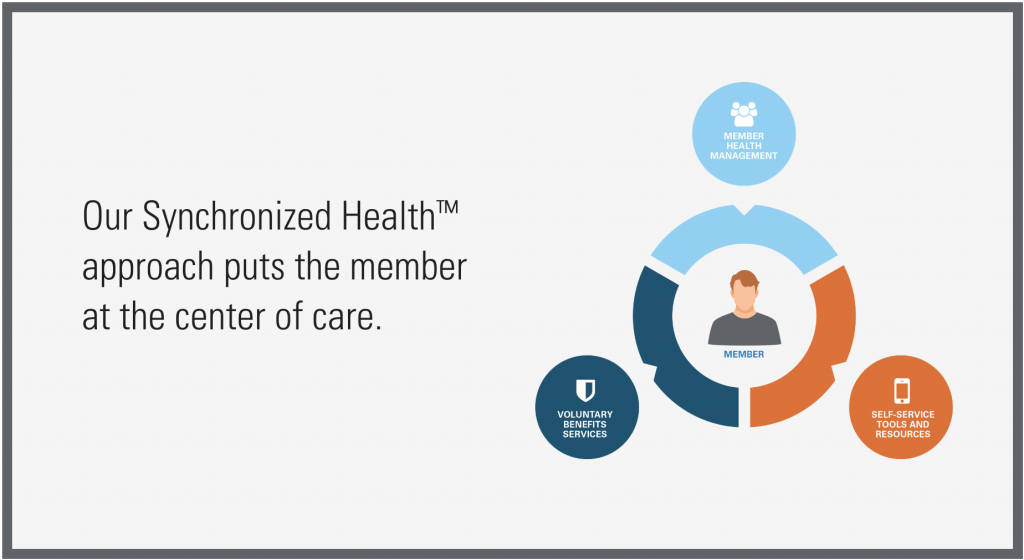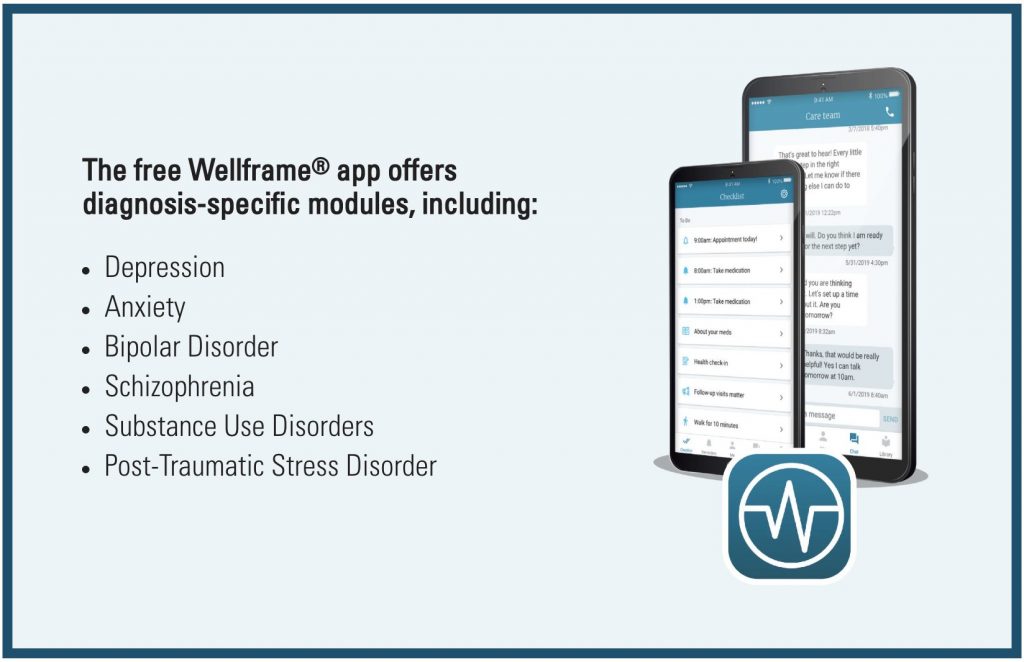
The Path to Wellbeing Includes Emotional Health
October 06, 2020Why a synchronized approach to care is needed now more than ever.
Employer focus on mental and behavioral health has grown in recent years. In fact, as a society, we’re talking much more about emotional health than ever before. What was once a taboo topic and a sign of weakness, is now discussed openly. Acknowledging mental health issues, such as anxiety and depression, and behavioral health issues such as addiction and substance abuse, is gaining greater acceptance.
The opioid epidemic, for example, has taken what was once considered an issue for those most at risk in our society and shown us that anyone can be impacted. High profile athletes, like Michael Phelps, have made it their mission to talk about their struggles with anxiety. So much so, he’s on television promoting services, such as Talkspace, and encouraging people to ask for help.
As a society, we’re talking much more about emotional health than ever before. What was once a taboo topic and a sign of weakness, is now discussed openly.
Why Businesses Should Care
In the U.S., mental health and substance use issues cost businesses $80 to $100 billion each year. Depression and anxiety alone cost the global economy an estimated $1 trillion annually in lost productivity, according to the World Health Organization.1

And even though over 200 million workdays are lost due to mental health conditions each year ($16.8 billion in employee productivity), it remains a difficult subject for many people to discuss. In fact, almost 60% of affected employees have never spoken to anyone at work about their mental health status.2
Employees want a more open culture when it comes to emotional health, especially millennials and Generation Z who now make up the largest demographic in the workplace.2 Most organizations offer employee assistance programs (EAPs), however, that’s not enough anymore. Employees want and need an all-encompassing approach that doesn’t just focus on their mental or physical health, but the entire person.

Navigating to a New Normal
Now, the effects of COVID-19 are being felt by everyone. While many are preparing to go back to work, some are left reeling from the trauma of the last few months. Whether it’s frontline health care workers or family members who lost a loved one, missed and cancelled milestone life events, or the daily stress of living under the same roof with your family while home schooling, working from home, or losing employment.
How do you manage the emotional health of employees who have been through the same crisis but have had to deal with the fallout in so many different ways?
While many are preparing to go back to work, some are left reeling from the trauma of the last few months.
At the Center, Not in the Middle
We understand guiding our members to proper care means looking at the whole member and meeting them where they are — which means acknowledging their emotional wellbeing as a factor.
Synchronized Health™ is our approach, and it is critical to fulfilling our mission of helping members lead healthier and more secure lives.

Health care is a complex industry. Most employees don’t encounter this complexity until they’re in the middle of a crisis trying to navigate the system. Our approach allows us to put our members at the center of what we do — not in the middle — and surround them with care, support and solutions that are holistic and work for them.
Our approach works to not only manage disease but also prevent it. Nurses, care managers, pharmacists, health coaches, wellness consultants, nutritionists, social workers, customer care advocates, and more come together to better care for the “whole” member, including their emotional health.
Our emotional health experts offer insight into every conversation we have — collaborating and integrating with other areas of our organization that may impact the member’s overall health care journey.
Nurses, care managers, pharmacists, health coaches, wellness consultants, nutritionists, social workers, customer care advocates, and more come together to better care for the “whole” member, including their emotional health.
When High Tech and High Touch Meet
For many people, nothing will replace a good ol’ heart-to-heart conversation. Our 24/7 Nurse Line is available to direct members to emergency resources when they are in need and want the comfort of a voice on the other end of the line.
But just as attitudes toward mental health are changing, so are the delivery methods for treating people. When it comes to emotional health, sometimes it’s easier for people to share remotely. Speaking by video or texting with a doctor or therapist can feel more private. That’s why we are partnering with physician’s offices to provide telehealth services during the coronavirus pandemic and behavioral health support in conjunction with our partner MDLIVE®.
We also introduced our care management app, Wellframe®. This is a cloud-based mobile platform that delivers care programs to members on their smartphone or tablet. Our case managers can obtain real-time progress, clinical alerts, and engage in two-way communication with members.
Additionally, our case managers can assist members in managing medications and connecting them to other resources for answers to their questions about their health — all through the app, which provides a holistic approach to health and makes care easier to manage.
Wellframe® provides a robust emotional health component to care. This includes a 30-day Behavioral Health & Wellness Foundation program, which covers general emotional health, wellness, and prevention topics.

What’s Next?
We’re entering uncharted waters. The only certainty is that this generational pandemic will have lasting impacts on all of us. On our physical health, our financial health, and our mental health. Providing a synchronized approach to physical and emotional health, and getting the right tools, programs, and support into the hands of those who need it most will help make a difference.
